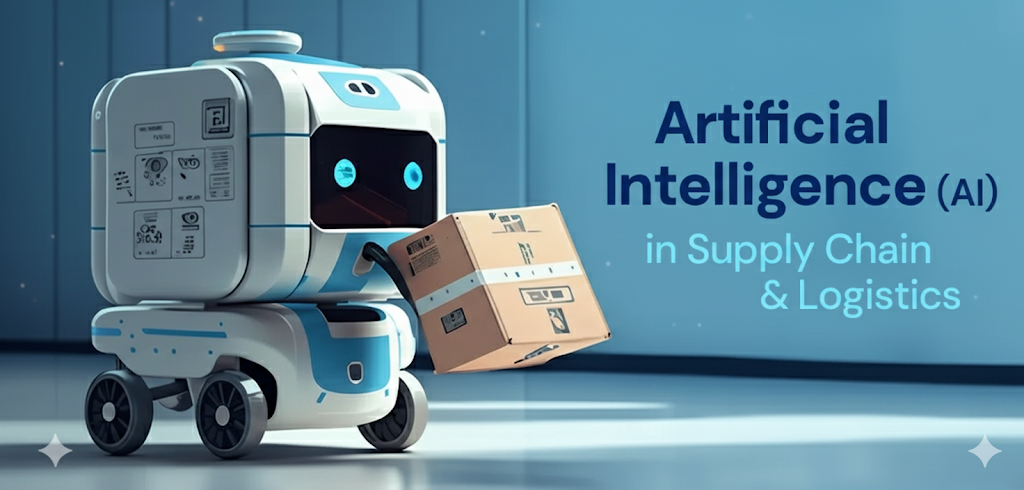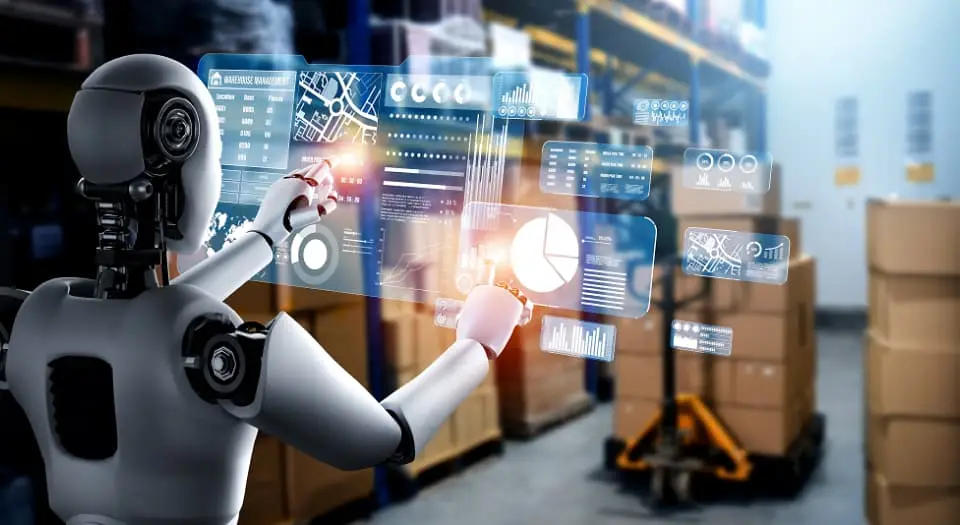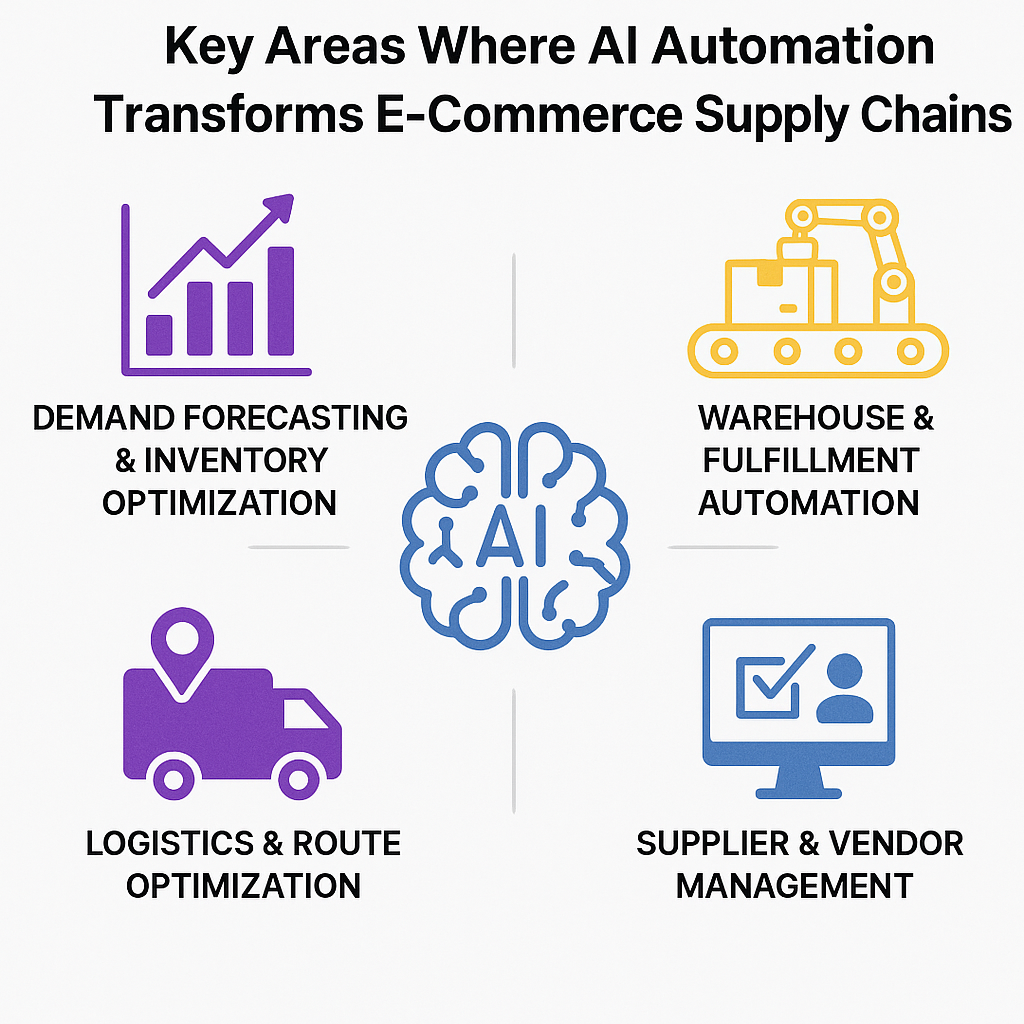
Supply Chain Management In ecommerce
Supply Chain Management in E-Commerce – AI Automation
In today’s hyper-competitive e-commerce landscape, customer expectations are defined by speed, reliability, and transparency. A delayed delivery or inventory mismatch can instantly push a buyer to a competitor. To stay ahead, e-commerce businesses must adopt AI-powered supply chain automation that not only streamlines operations but also anticipates disruptions and adapts in real time.

Why AI in Supply Chain?
Traditional supply chain systems rely heavily on static rules and historical reports. But e-commerce operates in a dynamic, high-volume environment where demand shifts by the hour and customer loyalty is fragile. AI bridges this gap by introducing:
-
Real-time decision making: Automated demand forecasting and stock allocation.
-
Predictive intelligence: Identifying supply risks before they escalate.
-
Process automation: Reducing manual dependencies in order fulfillment, warehousing, and logistics.
Key Areas Where AI Automation Transforms E-Commerce Supply Chains
1. Demand Forecasting & Inventory Optimization
AI models analyze seasonality, buying patterns, and even external factors like weather or festivals to predict demand accurately.
-
Prevents overstocking (tying up capital).
-
Reduces stockouts (lost sales).
-
Aligns with regional demand trends (crucial for marketplaces operating across India or globally).
2. Warehouse & Fulfillment Automation
-
AI-powered bots handle order picking and packing.
-
Smart routing systems determine the fastest and cheapest dispatch method.
-
Predictive algorithms manage re-ordering cycles to avoid last-minute scrambles.
3. Logistics & Route Optimization
-
Machine learning helps in real-time fleet management by rerouting deliveries around traffic congestion.
-
Integration with external APIs (maps, weather, customs) ensures smoother last-mile delivery.
-
For Indian e-commerce, AI can adjust for tier-2/3 city delivery challenges where infrastructure is unpredictable.
4. Supplier & Vendor Management
AI-driven dashboards score suppliers on delivery time, reliability, and cost.
This reduces risks from unreliable vendors and helps in negotiating better contracts.
5. Conversational & Agentic AI for Supply Chain
-
Conversational AI bots integrated into vCX can give real-time shipment status to customers and partners.
-
Agentic AI agents autonomously monitor vendor SLAs, trigger alerts for delays, and initiate corrective actions — without waiting for human escalation.

Benefits for E-Commerce Businesses
-
Cost Reduction: Lower wastage, optimized logistics, and fewer manual errors.
-
Speed: Faster fulfillment and delivery lead to higher customer satisfaction.
-
Resilience: AI models adapt to disruptions (port strikes, weather delays, supply shortages).
-
Customer Experience: Real-time visibility builds trust and repeat business.
The India Context
In India, where festive seasons like Diwali, Holi, and Independence Day can double or triple online demand within days, AI automation ensures businesses are not caught off-guard. Similarly, addressing last-mile delivery challenges in remote areas becomes feasible with AI-enabled route and partner optimization.
Recent cases have shown how e-commerce giants have deployed AI-driven demand sensing to prevent warehouse chaos during big sales. The same tools are now accessible to mid-sized players via platforms like Versalence AI + vCX, making advanced supply chain automation a reality for all.
How Versalence Helps
At Versalence, we combine AI Automation, Conversational AI, and Agentic AI with our vCX Social CRM to deliver connected supply chain intelligence:
-
AI forecasting integrated with your ERP/Shopify/BigCommerce.
-
WhatsApp + Webchat bots for order tracking and customer updates.
-
Autonomous agents that flag risks and automate re-ordering.
Final Word
AI automation in e-commerce supply chain management is not just about efficiency; it’s about competitive survival. Businesses that embrace AI today will be the ones setting tomorrow’s benchmarks in customer trust, delivery speed, and operational excellence.